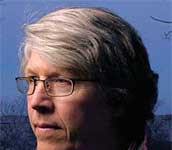 Editor’s Note: The following is from Sue Polanka’s No Shelf Required blog. Reprinted with permission. Sue is Head of Reference, Wright State University Libraries, Chair, Editorial Board, Reference Books Bulletin, Paul Biba
Editor’s Note: The following is from Sue Polanka’s No Shelf Required blog. Reprinted with permission. Sue is Head of Reference, Wright State University Libraries, Chair, Editorial Board, Reference Books Bulletin, Paul Biba
Bowker and AAP sponsored a webinar today on US Consumer Book Buying. It was incredibly well organized and full of good data. My notes and comments are included below.
Speakers
- Tina Jordan (AAP) moderator
- Kelly Gallagher (Bowker) speaker
2009 data, first 6 months, based on what consumer is buying/reading
- 2008 – e-commerce the dominant channel for book sales, beating out brick n mortar
- 2009 – so far, large chain bookstores are back at the top
- Consumer is King and defines the marketplace, we can’t publish like we used to – the old supply/demand model.
3 indicators – impact of economy, competition for leisure time, product selection (genres, formats)
Economy –
- 2001 – 2007 book buying was good, avg. 60% of adult population, but in 2008 with economic crash, only 49% buying books.
- 2009 – long tail and print on demand make more titles available longer. What impact will eBooks have?
- 64% of book buyers say the economy is having an impact on book buying
- 69% females, 57% males, those making less, not buying as much
- women sharing books and buying used books more often
Time –
- before 1975 there were 8 choices for entertainment/info (books was one) - in 2009 there are 21 choices (books still there), more choices = less room for reading books, harder to reach users
- online activity taking the lead in activities – over TV, music, reading. Reading books is in a decline the last 3 years
- more men give up reading for online activity
- even with the best book readers (male/female), online activity is taking more of their time than reading
- age – 65+ spends more time reading than online, but every other age segment is online more than reading
- where can you reach buyers? online is the key
- 21% of fiction book purchases were based on online awareness (heard about it online)
- 55% of heavy/moderate buyers are socializing online – differs based on genre of fiction books, fantasy is largest group
Product Selection –
- trade market: double digit declines in hardcover/paperback and mass market sales, yet ebooks are up 28%
- cost differential in sales – hardcover vs. eBooks $6.25 price difference
- eBooks having biggest impact on the hardcover sales
- eBook units/sales – 2008 less than 1% market share/units – less than 2% overall sales. 2009 1.5% market share/units and 1.2% overall sales – eBooks still small market share, but dollars spent declined (9.99 eBook price impact)
- who is fueling the eBook growth? early adopters of eBook readers. largest growth segment is those over 50 -183% change in growth
- devices – Sony & Kindle attracting the older age group, PDA/iPhone are attracting younger readers
- iPhone readers are young & affluent (follow the money)
- computer use/downloads are still predominant way to access/read eBooks 40%, Kindle 26%, iPhone 13%, Sony 6%, PDA/mobile – 5%, other 8%. But if you look at it by genre, like fiction, the Kindle takes the dominant share
- young males might be the next wave of eBook buyers
- juvenile book sales increasing in 2009, fiction too
- YA readers – 72% female, 28% male and females buy more books, but males spend more per unit then females
- not all YA books purchased by YA’s, ranges in all ages 18 – 40 year olds have over 50% of YA sales
Summary
- consumer today wants what they want, when they want it, how they want it
- publishers should take the additional effort to find readers and deliver the content they want
- my two cents – libraries should look at this data too and figure out how to reach our users with the content they want
- Data from – Bowkers Pubtrack Consumer Survey
- bookbuyrinsight- twitter
- www.bookconsumer.com






























It’s very helpful to think about these numbers, transform them into sensible conclusions, and then plan our publishing strategy with this goal: we want to keep readers reading ebooks, if they close the covers on the more-expensive paper books. Thanks very much, Sue Polanka, for sharing this useful information.